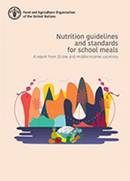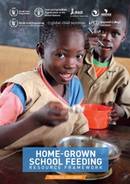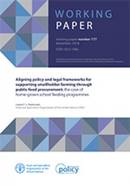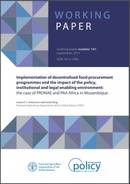Publications
Nutrition Guidelines and Standards for School Meals: A Report from 33 Low and Middle-Income Countries, is the result of a collaborative effort between FAO’s Nutrition and Food Systems Division with other technical divisions (Development Law and Food Safety) and regional/sub-regional/country offices.
This Resource framework is intended as a guidance tool for stakeholders involved in programme design, implementation and monitoring of Home-Grown School Feeding Programmes and the related policy and institutional environment, including, inter alia: governments and development partners providing technical and financial assistance, as well as civil society, community based organisations and the private sector. It is a knowledge product that harmonizes the existing approaches and tools, and builds on the wealth of expertise and experience with home grown school feeding models i.e. those designed to provide children in schools with safe, diverse and nutritious food, sourced locally from smallholders, with multiple impacts on Sustainable Development Goals. This knowledge product contains a discussion of concepts, issues and experience , as well as other considerations and elements of relevance to home grown school feeding programmes. This lays the ground for a community of practice to support innovation and learning, as well as replication, adaptation and expansion of successful models of interventions, for impact at scale.
In the past few years, various countries, regions and cities from low-income to high-income economies have been developing a range of food procurement initiatives designed to use the regular demand for food on the part of government entities as a policy instrument targeting broader development objectives.
This regional overview of national school food and nutrition programmes in Africa is the result of collaboration between the Food and Agriculture Organization of the United Nations and the Government of Brazil, particularly the Brazilian Cooperation Agency (ABC) of the Ministry of Foreign Affairs and the National Fund for Education Development (FNDE) of the Ministry of Education.
The development and implementation of an efficient institutional food procurement programme (IFPP)—which aims to link smallholder producers to institutional markets and promote development of food supply systems—is not a simple or straightforward task. It requires a series of conditions that must be coordinated and matched together. These conditions depend on—but go far beyond—governmental will and the availability of demand. The central idea of this paper is that the policy and legal frameworks within which an IFPP is designed and the institutional environment in which it is implemented influence and can have a key impact on its successful implementation.





